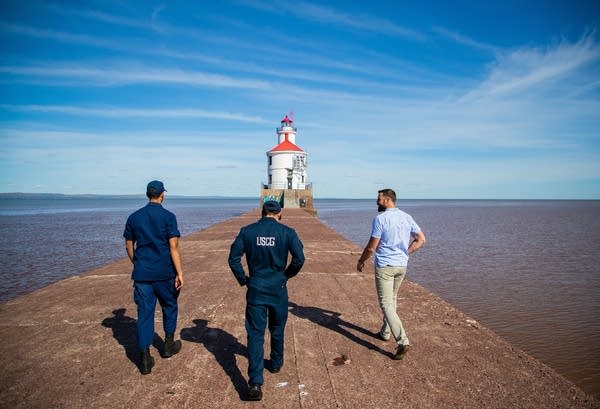Historic Lake Superior lighthouse sold at auction 5 years ago is available once again

Coast Guard seaman Meyin Klin (left) and Petty Officer Eduardo Gutierrez (center) walk with Steven Broudy (right) to the Superior Entry Lighthouse Monday, Oct. 7, 2019 in Superior, Wis.
Derek Montgomery for MPR News
Go Deeper.
Create an account or log in to save stories.
Like this?
Thanks for liking this story! We have added it to a list of your favorite stories.


